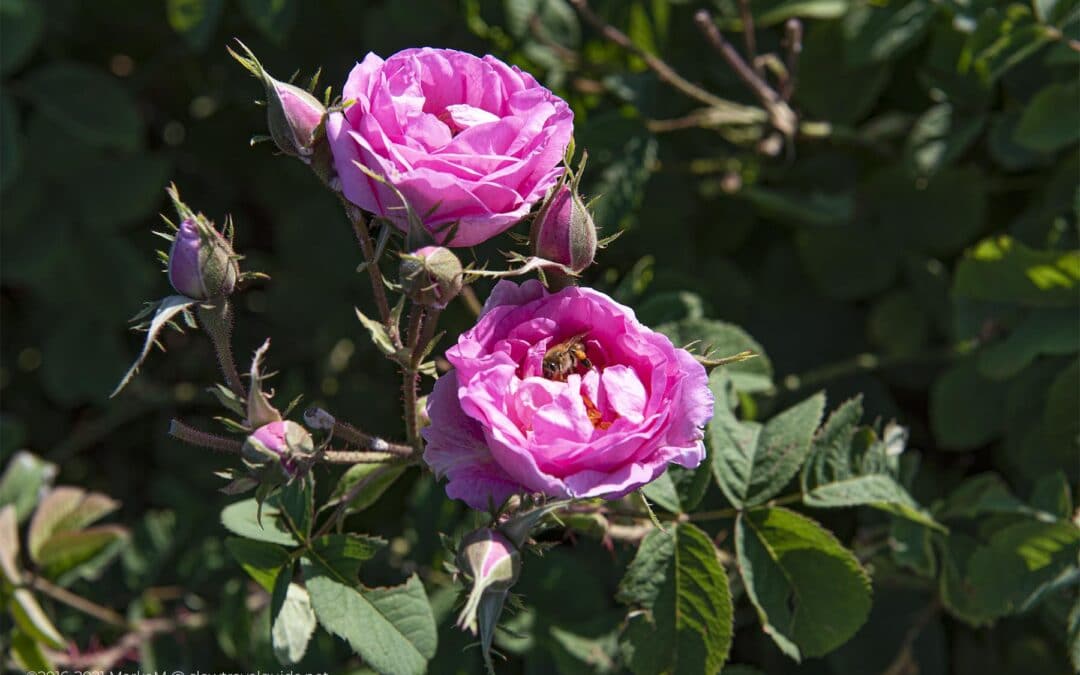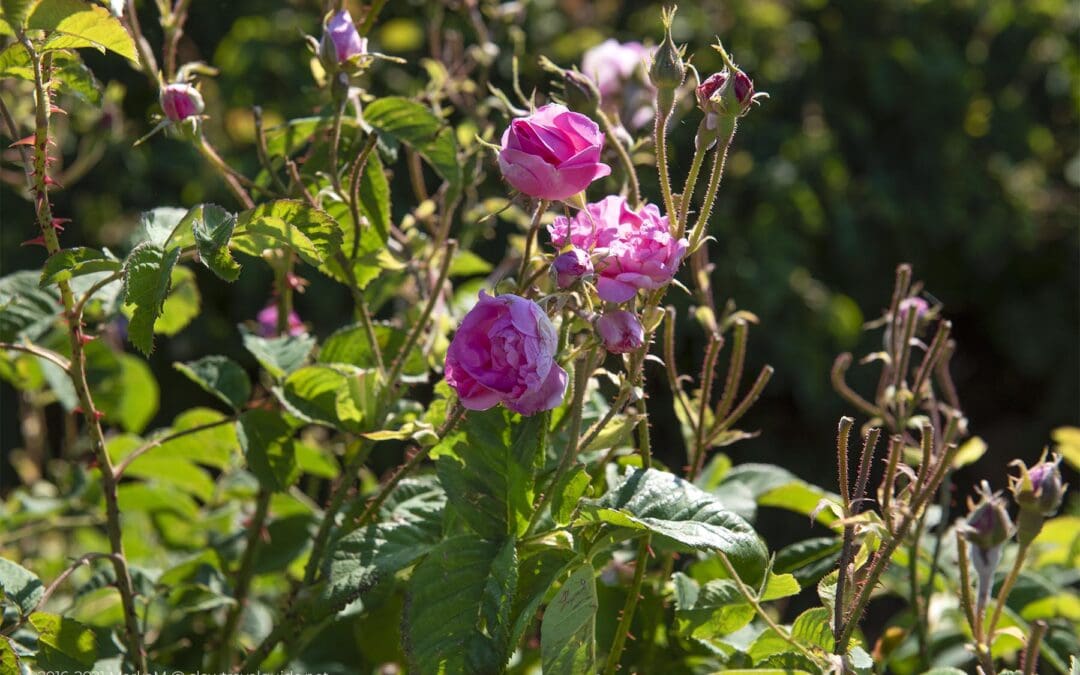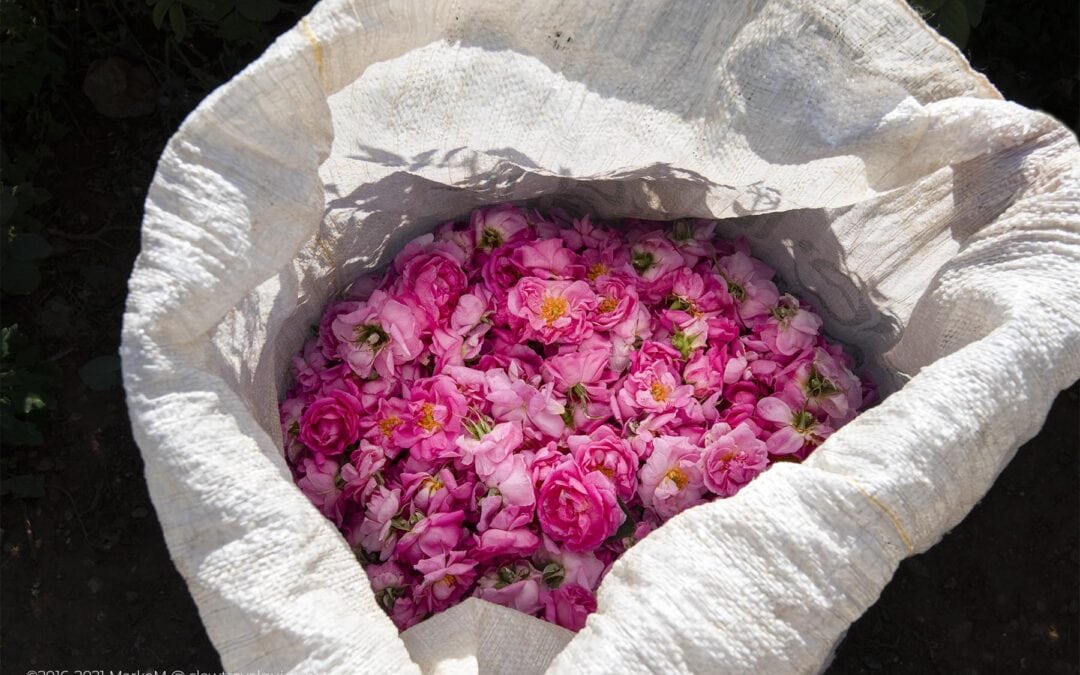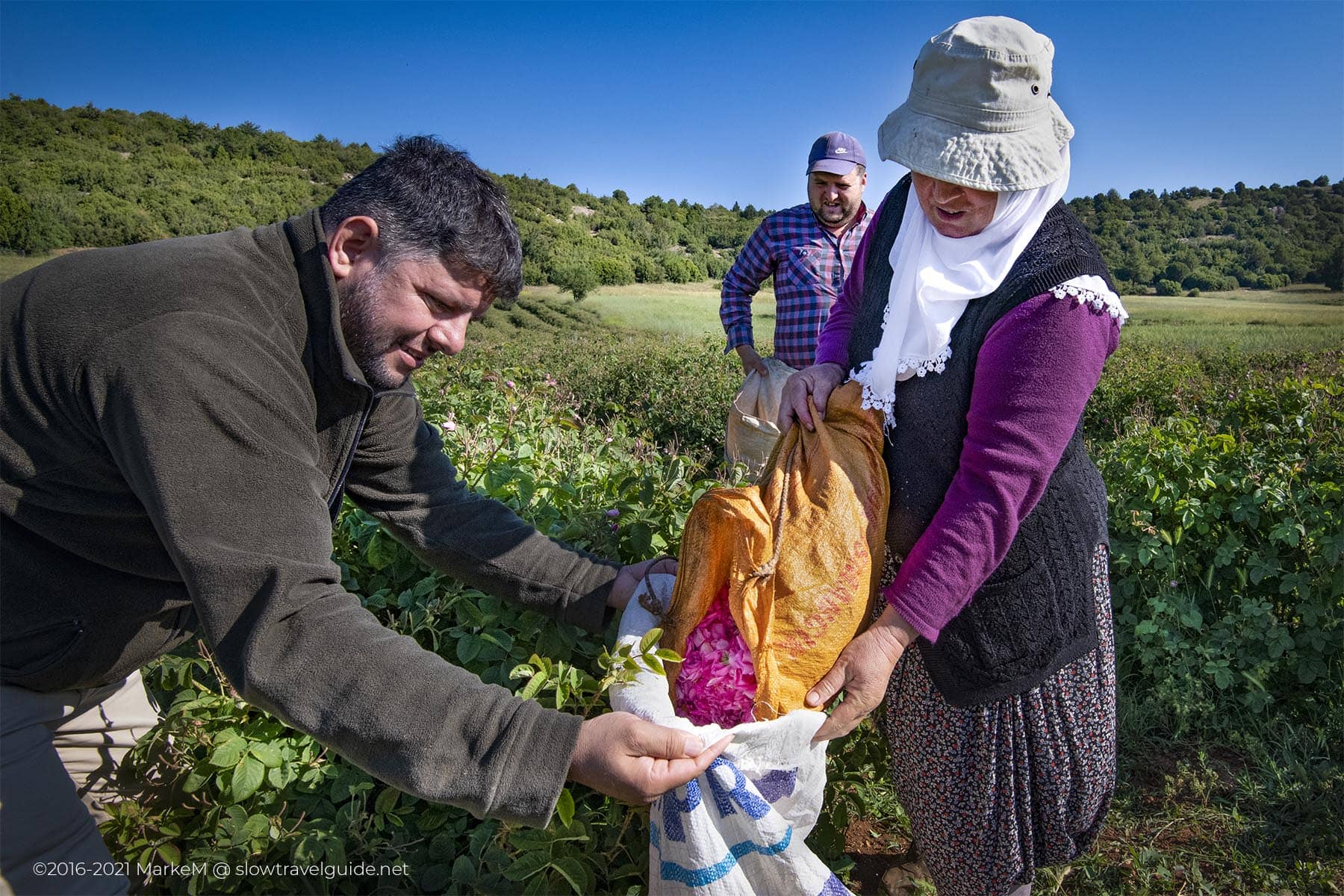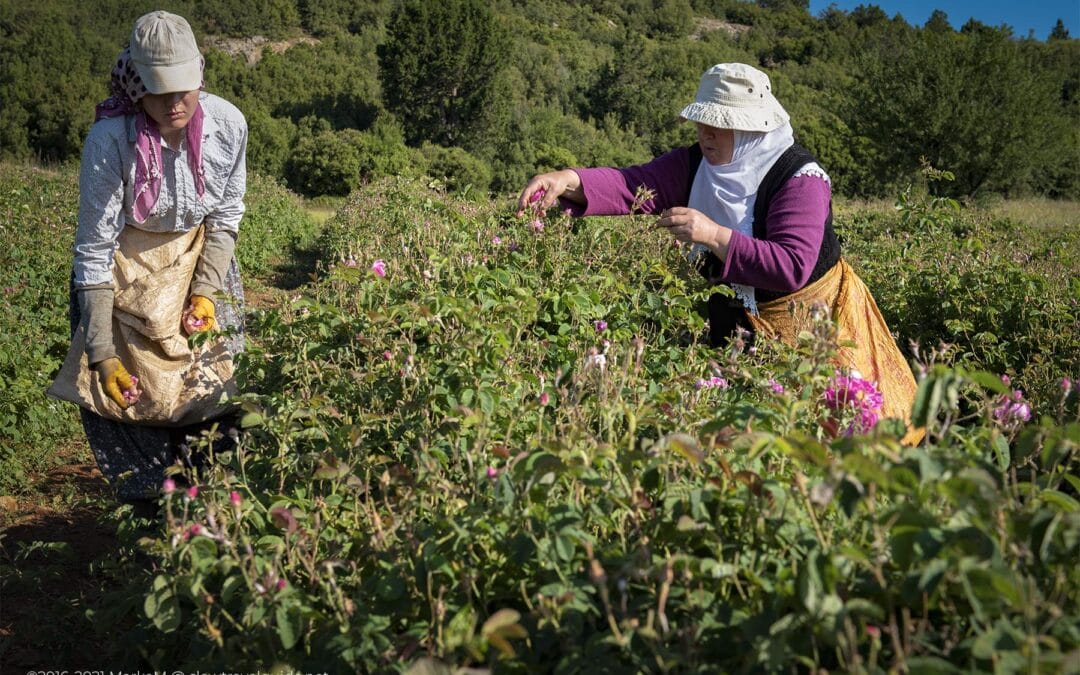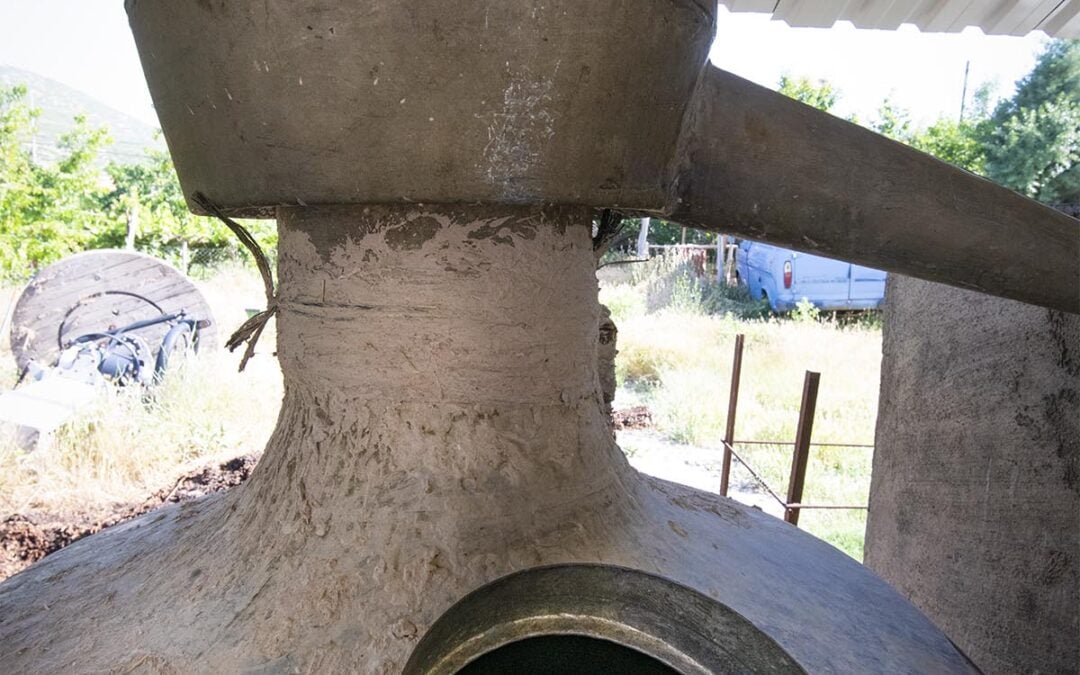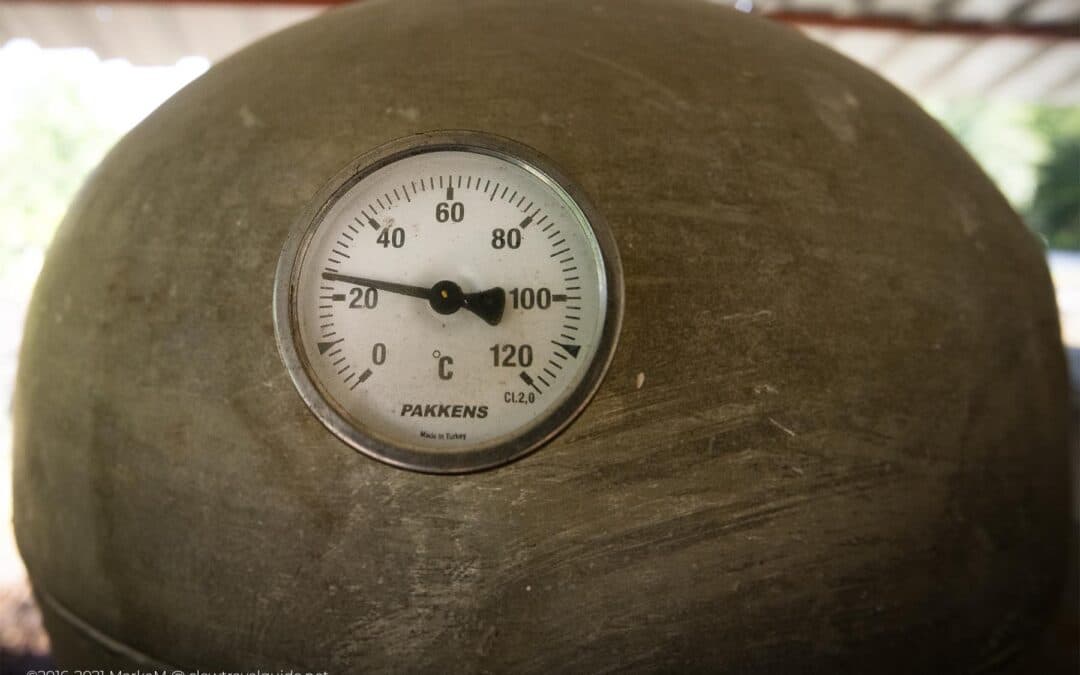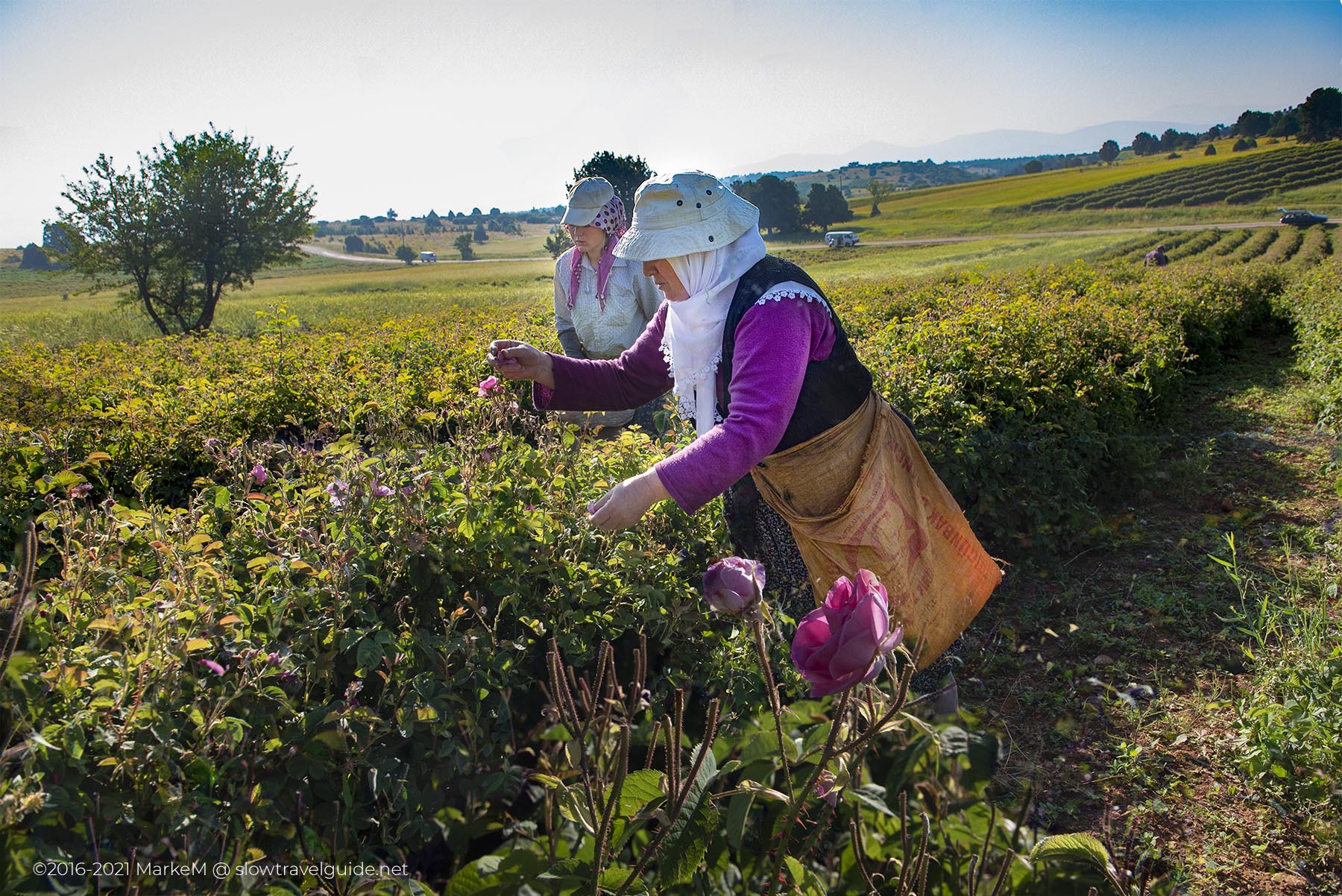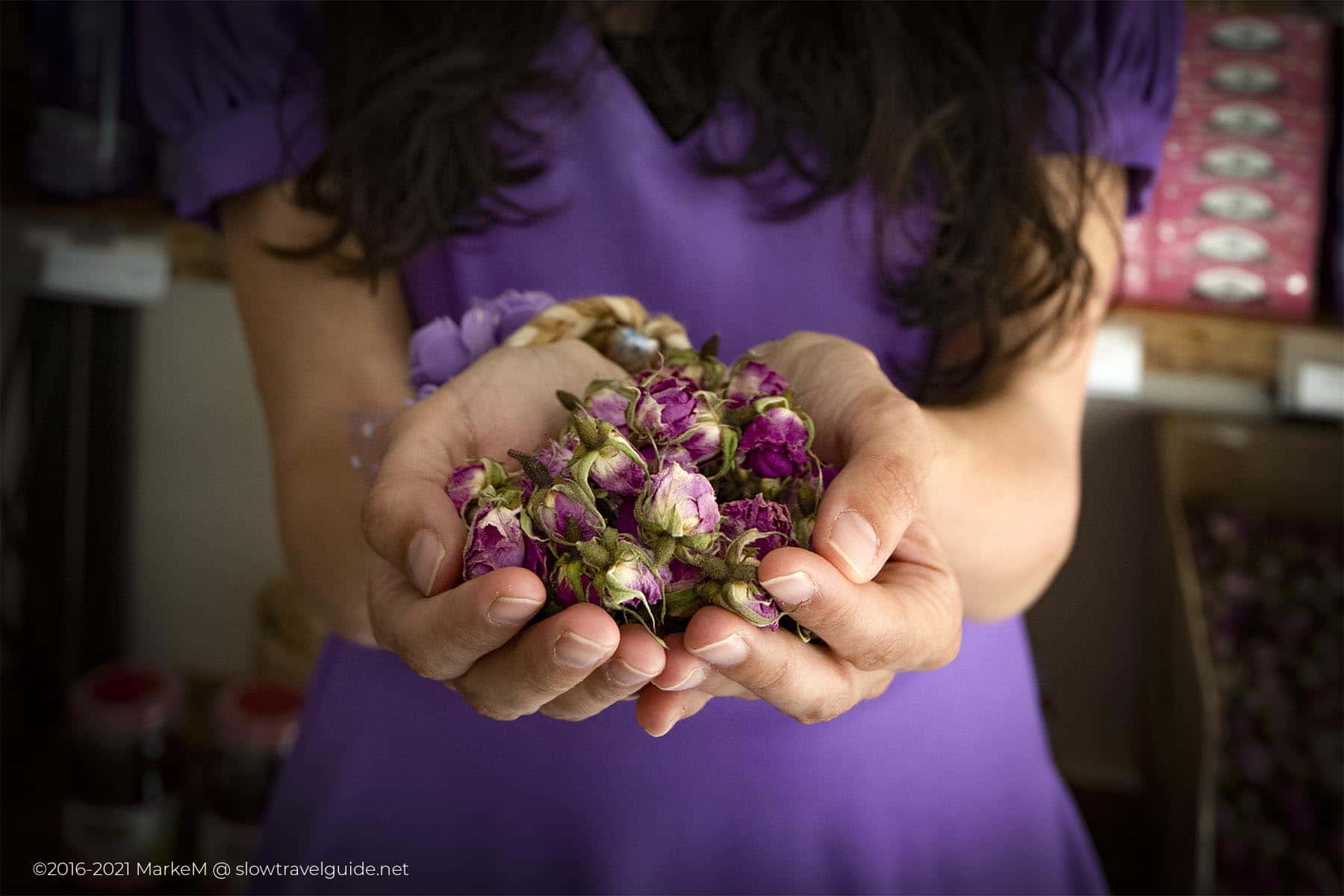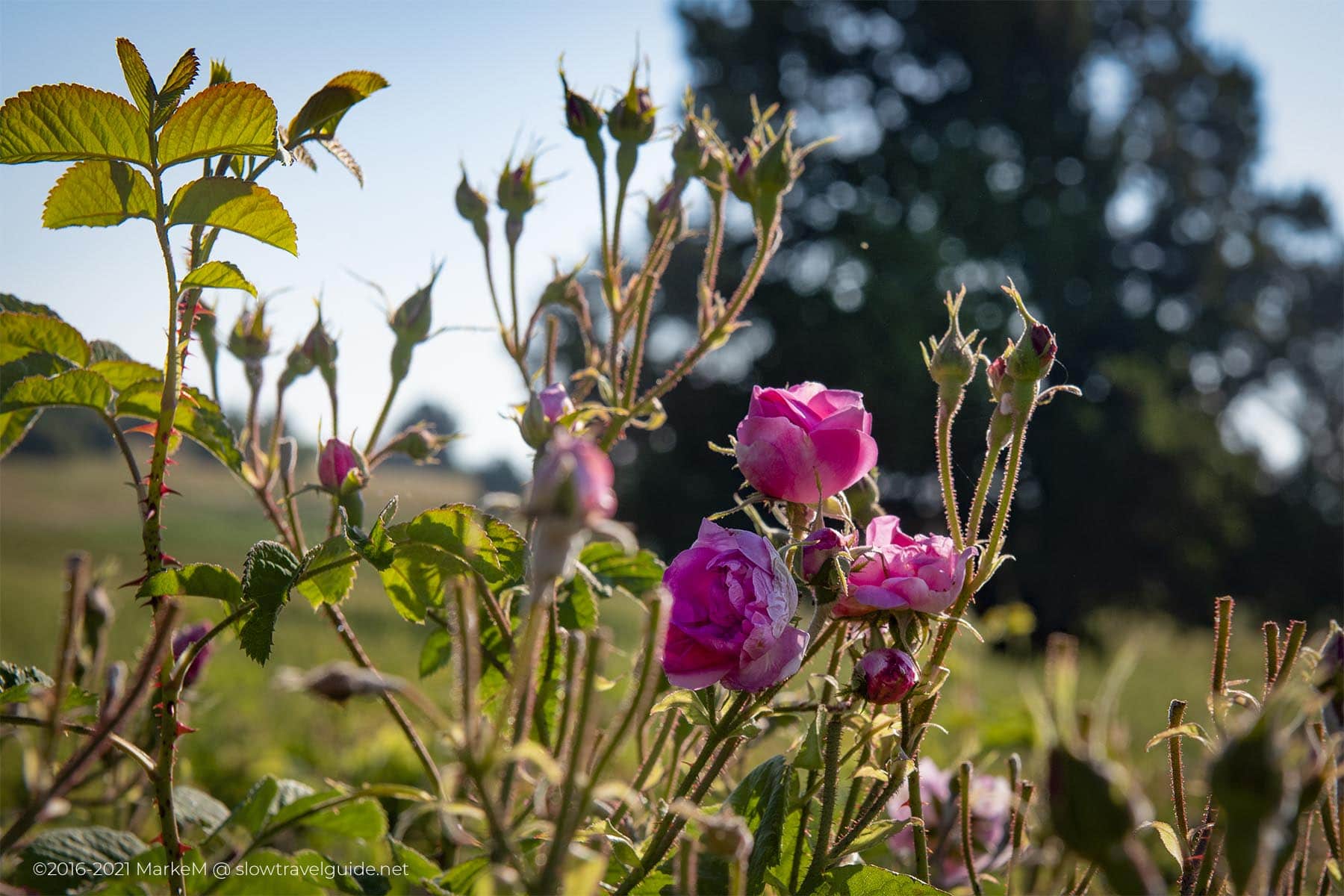Rose Harvest
By Slowtravelguide

Rose Harvest In Turkey
For someone who went to the Isparta before, it will be clear that this is the city of roses. Once you’re close to town, it’s hard to miss the pink billboards promoting rose products. While it may seem like a brilliant commercial stunt, Isparta rose production has a long history. As always, the real magic happens outside the store, and the skilled hands of the early risers are the secret to the rose harvest in Isparta. When the fresh scent of Damascus roses fills the morning air, the smell hits the nostrils, and the awe-inspiring rose garden quickly transforms from blooming pink bushes to lush green fields.
In this article, we’ll tell you how Damascus roses came to in Turkey and what you need to do to get the most out of your rose-trip.
How The Damask Rose Was Smuggled In
The Damask rose fields have always dominated the view on the outskirts of Isparta you think. The city’s symbol, however, isn’t indigenous to this region. The first saplings were smuggled in from Bulgaria on a walking stick by a man called İsmail Efendi around 1870. Why was it smuggled? Because the Bulgarian rose valley in Kızanlık (or Kazanluk), where he took the saplings, was a protected area. Still, during his time in Bulgaria, Müftüzade İsmail Efendi noticed how lucrative the production of rose oil could be and decided to give it a shot once he came back to Isparta.
By 1892, he started producing rose oil. The rest is history, the rose oil production in Turkey now accounts for about 65% of the worldwide production, and is an important source of income for thousands of families in the area.
Where are the Isparta Rose Fields Located
Altough the lavender fields in the region are more concentrated, the rose fields are more scattered among several locations in valleys and villages. You’ll find Isparta’s most extensive rose garden near Güneykent, which the locals call “Güller Vadisi” or the Valley of Roses. But also near Yeşilyurt, Gülköy and even the lavender villages of Kuyucak and Ardıçlı. If you’re an independent traveller like us, take a short road trip through the valley, and you’re sure to see the rose garden. If you’re looking for the quintessential hot spot, head to Rose Valley.
The photos in this article were all taken near Yeşilyurt. You can find the exact location on the map at the bottom of this article.
Best Time To Visit The Rose Fields
Best time to visit the rose garden and see the rose harvest, you need to know two things: you have to come in the correct month and visit at the right time of day.
The rose garden blooms from mid-May to the end of June.
The harvest of roses begins every morning at dawn, and by 10 am, you are too late, and everyone rose that blooms have been harvested.
Rose picking is done entirely by hand, starting at sunrise. The plan is to finish picking each day before the sun is too bright and hot. It’s not about protecting workers, and it’s about safeguarding precious oil. Fresh, blooming flowers are rich in oil. As the sun strengthens, the roses ripen too quickly, causing the oil to evaporate into the air.
Then the roses go to the factory for processing on the same day. Most rose oil production is very much industrialised these days, some artisanal rose oil manufacturers still use traditional methods and make rose oil using stills they call black pots, and no chemicals are used. You need about 4 tons of roses to extract 1 kg of rose oil. If you know that this is equivalent to over 1.5 million roses, you understand that this is a labour-intensive process. That’s why rose oil is considered the liquid gold of the fragrance industry.
(Fun) Facts About Roses
You can find Gülköy in our list of villages to visit the rose gardens. A convincing name, as it translates to Rose Village. The billboards around Isparta are not the only ones that feature roses, but you’ll also notice that many girls and women have names with the Turkish word “gül” for roses. Some are just called Gül, others are Gülay, Gülseren or Gülderen, to name a few. The last three have a lovely story.
The names are given based on when the girls were born. Girls at night are called Gülay because “ay” is the Turkish word for moon. Gülseren’s is held in the afternoon when the roses unfold before distillation. The name means “she who spreads roses”. The morning girl – in the same metaphor – is called Gülderen, because that is the time of harvest.
Only blooming roses harvest rose oil.
In addition to its precious and delicate aroma, damask rose oil can also be used as an antidepressant or to heal the skin. Damascus rose water is your go-to remedy for:
* heal wounds
* Reduce skin redness
* Tighten pores
* Anti-aging effect
* Treat eye infections
* Soothes pharyngitis
Final Thoughts on Visiting the Rose Garden and the Rose Harvest
If you want to admire the rose gardens near Isparta, especially to witness the rose harvest, be sure to arrive early in the morning. For the best experience, explore further afield to avoid large groups. Are you keen to participate in the harvest? You are more than welcome to do so. As mentioned, speed is a key factor, so another help is always appreciated! You’ll quickly learn how to pick flowers, and you’re good to go! Be sure to bring something to protect you from the heat and early morning sun.
If you’re interested in a pre-arranged experience, consider attending the annual Rose Festival organized by the municipality of Güneykent in Isparta every May. Also, if your visit is just in time – and you’re a little lucky – you’ll be able to combine a visit to the lavender fields with your rose harvesting experience. While late June is still early for lavender blooms, the purple seas are usually already starting to show. That way, you’ll enjoy the last days of the rose harvest and the first days of the lavender blooms.
© 2016-2022 All rights reserved by slowtravelguide.net.
The content of this website is copyright protected and the property of slowtravelguide.net.No part of this website may be reproduced in whole or in part in any manner without the written permission of the copyright owner.
Copyright ©2016-2022 Tüm hakları saklıdır. Bu (slowtravelguide.net.) web sitesinin içeriği koruma altındadır ve slowtravelguide.net.Buradaki hiçbir içerik (yazı,fotoğraf,video vb.) izinsiz olarak kopyalanamaz, alıntı yapılamaz,başka yerde yayınlanamaz.

